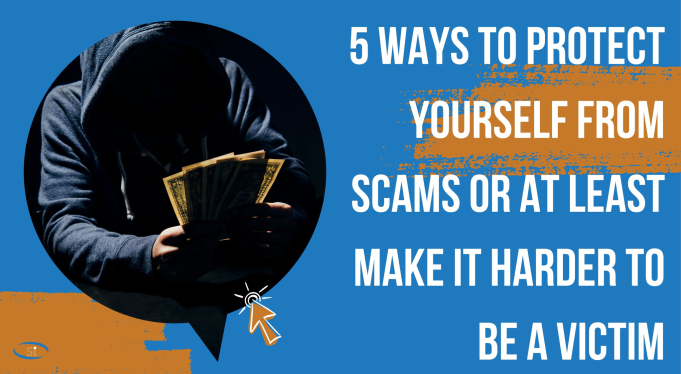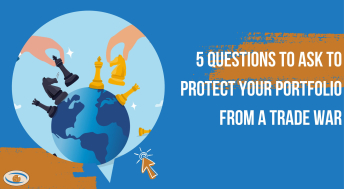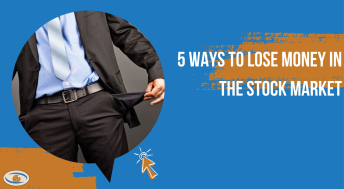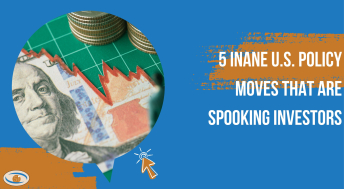Every day, it seems, we read a sad story of how a Canadian has been scammed in one way or another. Be it a cryptocurrency trading scam, a Facebook Marketplace scam, an email phishing scam or something else, we are constantly reading about some poor individual, usually an older person, losing thousands, even hundreds of thousands, of dollars to an ingenious scam.
Most of the time, the scammers can’t be prosecuted because there is either simply no trail to follow or the trail leads to another country where prosecution is difficult, if not impossible.
Here are five ways to protect yourself, or at least make it harder for you to be scammed. We will leave out the obvious, such as having strong passwords and not opening email attachments from people you don’t know.
Don’t be greedy
Most scams prey on two strong emotions: fear and greed. On the greedy side, a lot of scams offer investors huge returns. Whether it is a sophisticated cryptocurrency trading platform or a basic pyramid scheme, the common element is that investors get excited about returns of 30 per cent or more and their greed makes them do less due diligence.
You do not need to be a financial expert to know that guaranteed investment certificates currently pay about five per cent. So, if you have been promised 20 per cent on some investment, you should know right away that something isn’t right. Sure, some investments can certainly return 20 per cent, but they involve a ton of risk, even if they are not outright scams. Your return is highly correlated with risks. This is something to remember with any investment.
Don’t answer that call
A lot of scams start with a random phone call. It could be someone offering you an investment or it could be someone posing as an employee of the bank you deal with. But think about it: Do you really think that there is a legitimate random stranger phoning you with a legitimate, safe, high-return investment opportunity? This is not how the investment world works.
Banking and other scams, on the other hand, prey on fear. A caller might tell you that your bank account has been hacked and your savings could be drained. But again, you need to use common sense here.
If your bank account has been hacked and the bank knows enough about it to call you, the easiest solution is to simply freeze the account until the problem can be investigated. You can go to the bank with identification to help solve the problem. At the very least, hang up and then call the bank back. Not on the number the scammer gives you, but the number you might regularly call or the main number from the bank’s website.
Watch out for identity scams
The development of AI means this will be a far greater problem in the future. A grandfather might get a call from a grandchild saying they are in trouble and need money. They might sound exactly like the relative, with the scammers using AI technology to duplicate their voice and even image. We have heard of scams where a victim fears a relative has been kidnapped and pays thousands of dollars in ransom. Meanwhile, the relative is wandering about town just fine.
There is an easy solution to this scam: All families should have a verbal password of some sort. If there are any weird conversations, a password confirmation can help sort out identities. Or ask the caller a question that a scammer would not know. Be careful here as social media provides a lot of that information, so a scammer might know a lot of answers. Make the password or question highly specific, not something simple such as, “What is your birthday?”
Unlock the Power of Informed Investing with 5i Research!
DIY investing doesn't have to mean going it alone. At 5i Research, we're your trusted partner in navigating the stock market. Our platform offers comprehensive stock and market research, empowering you to make smart investment decisions.
- Investor Q&A: Have burning questions? Get answers from our team of experts and fellow investors in our dedicated Q&A section.
- Research Reports: With over 60 meticulously researched Canadian stocks, our reports offer in-depth analysis, giving you the confidence to invest wisely.
- Model Portfolios, Alerts, Forums, Portfolio Tracking, and Much More...
Nothing has to be done ‘now’
Scammers always stress the urgency of whatever it is they want you to do. For example, if you are a target of a boiler-room, penny-stock scam, the broker will urge you to “act now” before the stock runs away on you. They might say a major announcement is pending or a takeover is imminent. The faster you react, the better it is for the scammer.
But if we know anything about investments, it is that you never really need to act that fast. If you are lucky enough to buy a stock that goes up 10,000 per cent over decades, it doesn’t matter so much if you buy it the next day, next week or next month. A long-term winner will be a long-term winner.
Investors need to do their research and know what they are buying. Again, common sense: If someone is calling you about an investment, then they are surely calling others. The word is already being spread. Maybe you should look for an investment that others don’t know about.
Don’t ever send money back
A common scam is that someone sends you a cheque and asks you to send money back to them. Sometimes, they message you for whatever reason, or want to buy something you are selling online, and “accidentally” send you a cheque for too much and ask you to send back the extra money. In some cases, you’ve allegedly won a prize, but you’re told to send money to cover taxes and fees.
Using your intuition helps here. Everyone knows, or should know, that banks will often hold cheques until they clear. There is no reason to do anything at all until you know you have the money in your bank. Also, how many times have you bought something and accidentally paid thousands of dollars too much?
Sure, mistakes can happen, but that’s why banks allow cheques to be stopped. Asking for cash to make up the difference is a giant red flag of a likely scam.
Take Care,







Comments
Login to post a comment.